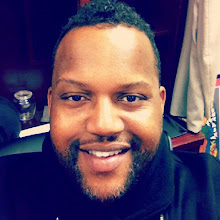
CHICAGO – In his third film, “American Violet,” director Tim Disney tackles the subject of unfair incarceration laws involving a poor African-American housing project in a rural Texas town. The uplifting drama is based on a true story and begins during the presidential election of 2000.
Dee Roberts (Nicole Beharie) is a single mother of four children, barely getting by on a meager waitress job and help from her mother (Alfre Woodard). When her housing unit is raided by country drug law enforcement, Roberts is arrested as a drug dealer suspect, accused unfairly by a police informant.
When an ACLU lawyer (Tim Blake Nelson) comes to town to take on the unjust laws that sweeps out and jails poor African Americans, it is Dee Roberts that steps up to take on a corrupt and powerful county district attorney (Micheal O’Keefe).
HollywoodChicago.com sat down with director Tim Disney, who reflected on his unique and powerful film.
HollywoodChicago.com: What is the strongest impression that you want the audience to gain after they view ‘American Violet’?
Tim Disney: I hope people are inspired by the Dee Roberts story as I was. There are a lot of specific issues in the movie about drug policy, abuse of informants and plea bargaining, but in a larger sense that change begins, and change is possible, when individuals make choices and stand behind them. That’s what drew me to the story in the first place.
HC: This film indicates that there are still miles to go in the civil rights struggle. What surprised you most in relating a modern story about the rights denied African Americans post the year 2000?
TD: The fact that the events take place simultaneously with the 2000 election of George Bush is just pungently ironic. Dee Roberts is in jail being pressured to plead guilty to a crime she didn’t commit, George Bush is at the Supreme Court being given an election he didn’t win. That’s wrong on many levels.
You could hear this story told and assume it happened in the 1930s. That these are contemporary people was really striking to me, and in fact the same people are still in power doing many of the same things. Progress is incremental, it’s one step forward and two steps back.
HC: There have been many examples of African American injustice films that have made changes to society’s attitude. What film would you compare American Violet to within that genre and how can the cinema art continue to shine a light in the dark aspects of racial bigotry and injustice?
TD: I don’t know where it fits in the very specific genre you mentioned. In many of the older films in that category like ‘To Kill a Mockingbird’ it is still the white father figure that solves the problem. We specifically tried to tell our story from the other point of view.
Even though there is a ACLU lawyer who is white and he is instrumental in the case, it is driven by Dee Roberts – an African American single mother on welfare with four children who lives in a rural Texas town – that is about as far from power as you can get in America and yet she is the catalyst for change.
In that context, it’s more similar to ‘Norma Rae’, ‘Silkwood’ or ‘Erin Brockovich’.
HC: Describe the interaction between yourself and Nicole Beharie, given that it was her debut in a film lead role. Since it was an ensemble piece, did some of the veteran actors help her out?







No comments:
Post a Comment